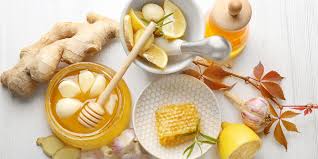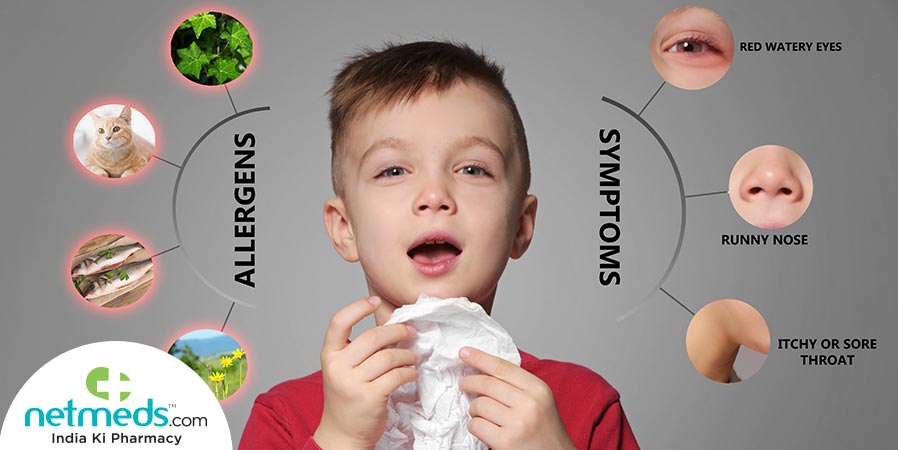In every Ghanaian home, especially when school is in session or during the harmattan season, it’s common for children to catch colds. From sneezing and runny noses to persistent coughing, the cold often finds its way into our homes. While colds are usually not dangerous, they can make your little ones feel very uncomfortable.
Instead of rushing to the pharmacy for cough medicines, parents should prefer gentle, natural ways to help their children feel better. Here are safe, trusted, and effective home remedies you can try right at home — just like our grandmothers did!
🍯 1. Honey – Nature’s Cough Soother
Honey has been used for centuries as a natural remedy for coughs and sore throats — and modern research backs it up. It’s thick, soothing, and antimicrobial.
✔️ How to Use:
-
Give ½ to 1 teaspoon to children over 1 year old at bedtime to calm nighttime coughing.
-
Mix it into warm (not hot) water or herbal tea for added comfort.
❗ Important: Never give honey to babies under 12 months, due to the risk of infant botulism.
💨 2. Steam – A Natural Decongestant
Steam helps loosen mucus and ease nasal congestion. It also keeps airways moist, reducing coughing and sore throats.
✔️ How to Use:
-
Run a hot shower, close the bathroom door, and sit with your child in the steam for 10–15 minutes.
-
Use a cool-mist humidifier at night.
-
Add a few drops of child-safe essential oils like eucalyptus (for kids over 2) for extra relief.
💧 3. Stay Hydrated – Fluids First!
Fluids help thin mucus, soothe sore throats, and prevent dehydration — especially if your child has a fever.
✔️ What to Offer:
-
Water throughout the day
-
Warm broths and soups
-
Popsicles for hydration and sore throat relief
-
Diluted fruit juice or herbal teas like chamomile (age-appropriate)
🌼 4. Saline Nasal Spray or Drops
Saline sprays are safe for all ages and help clear out mucus gently, especially helpful for stuffy little noses.
✔️ How to Use:
-
Use a saline spray or drops 2–3 times daily, followed by a gentle nasal aspirator or tissue.
-
Works well before bedtime to ease breathing at night.
🧦 5. Warm Compress for Sinus Relief
A warm cloth placed over the nose and forehead can ease sinus pressure and help kids relax.
✔️ Try This:
-
Soak a clean cloth in warm water, wring it out, and place it over your child’s cheeks or forehead for 5–10 minutes.
🥣 6. Chicken Soup – Grandma Was Right!
Chicken soup isn’t just comfort food — it’s hydrating, soothing, and shown to have anti-inflammatory effects that may help reduce cold symptoms.
Tip: Add garlic and ginger for an extra immune-boosting punch.
🍊 7. Immune-Boosting Foods
Support your child’s immune system with nutritious, vitamin-rich foods during a cold.
✔️ Top Picks:
-
Oranges, lemons, and pineapples
-
Mangoes when in season
-
Garlic and ginger (add to soups or teas)
-
Yogurt (with probiotics)
-
Kontomire and other leafy greens (in stews or smoothies)
🛏️ 8. Rest, Rest, Rest
Healing happens faster when the body is rested. Let your child take naps, reduce screen time, and sleep early.
✅ Quiet activities like colouring, storytelling, or listening to music can help them rest without being bored.
🚫 What to Avoid
-
Cough and cold medications are not recommended for children under 6 unless prescribed.
-
Avoid aspirin in kids due to the risk of Reye's syndrome.
-
Don’t use honey under 12 months of age.
-
Be cautious with essential oils — some are not safe for young children.
🚨 When to Call the Doctor
See your pediatrician if your child:
-
Has a fever over 39°C for more than 3 days
-
Is under 3 months and has a fever at all
-
Has difficulty breathing or persistent wheezing
-
Is unusually drowsy or not drinking enough fluids
-
Shows signs of an ear infection (ear pulling, crying at night)
🏡 Final Thoughts
Childhood colds are rarely dangerous, but they can be uncomfortable. Using natural, gentle remedies can ease symptoms and speed recovery — all while supporting your child’s immune system the natural way.
With rest, love, and a few home remedies, your little one will be back to their playful self in no time. Let’s continue blending traditional Ghanaian wisdom with safe, modern health practices to keep our children happy and strong!




Comments (0)
Leave a Comment
No comments yet. Be the first to share your thoughts!